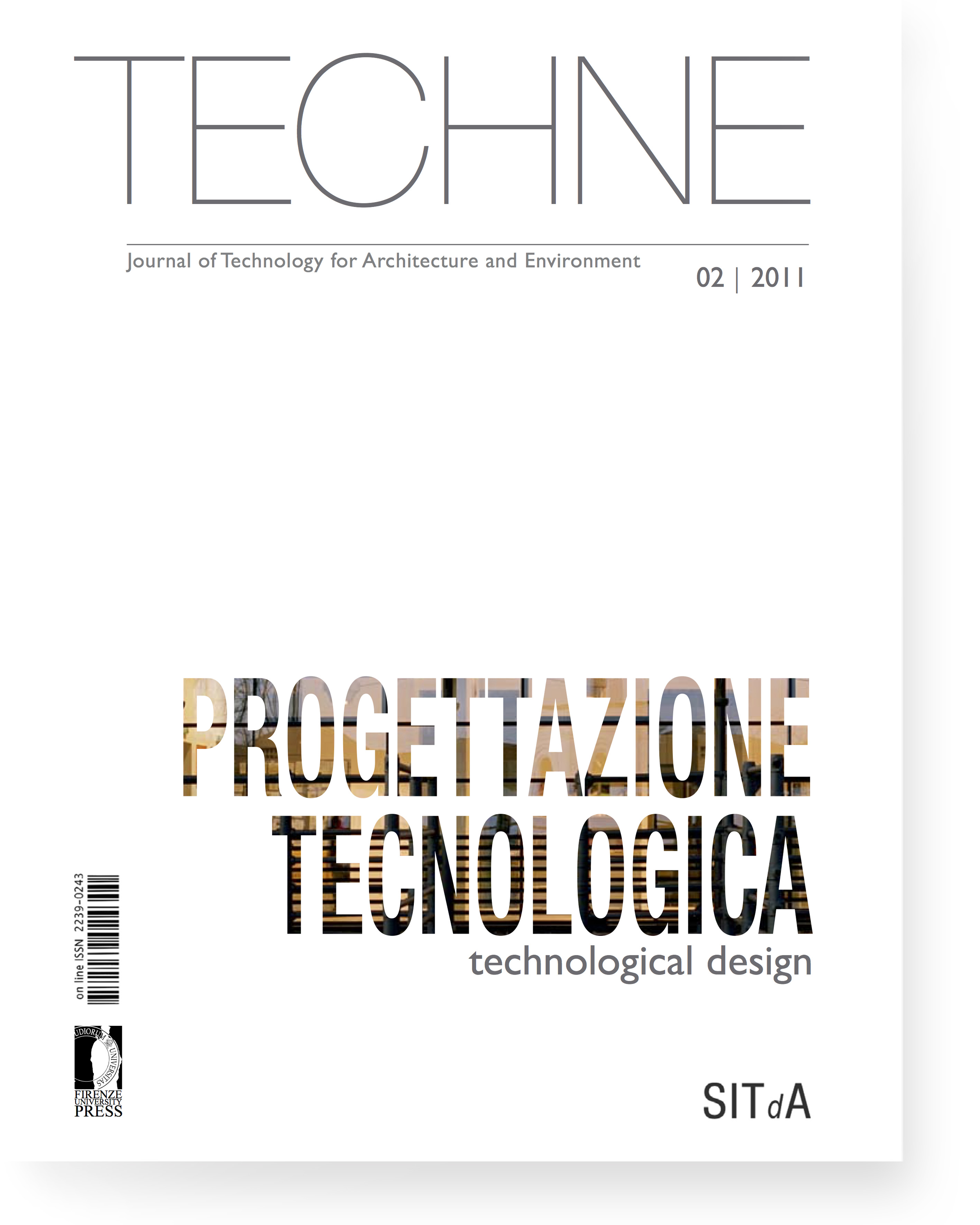Essays and Viewpoint
Published 2011-11-02
Keywords
- Evaluation,
- Technological design,
- Researches for the project,
- Complexity
How to Cite
Losasso, M. (2011). The project as product of scientific research. TECHNE - Journal of Technology for Architecture and Environment, 1(2), 78–85. https://doi.org/10.13128/Techne-9929
Abstract
The topic of project as product of research for the Area of Architecture can be considered therefore central for tradition, for the recognized value on social, economic and environmental effects of the works of architecture and, finally, for the declared accreditation from scientific bodies and evaluation structures of Athenaeums. As it is not reasonable to imagine an automatic correspondence between project and its research value, such value is clearly verifiable when for it are underlined specific qualifications in base to genetic peculiarity, to particular operational developments, to exemplary modes of production, to evident cultural, social, economic and environmen- tal effects. Within the various components of the design introduced recently by the CUN (National University Council), the reference of technological design to the problem solving field, in which it is possible to organize decision-making abilities and manage information for the project success, refers to the knowledge fields and to the activities that interact with the know-how, with the method and with the simultaneity of theoretical and prac- tical knowledge.Downloads
Download data is not yet available.






